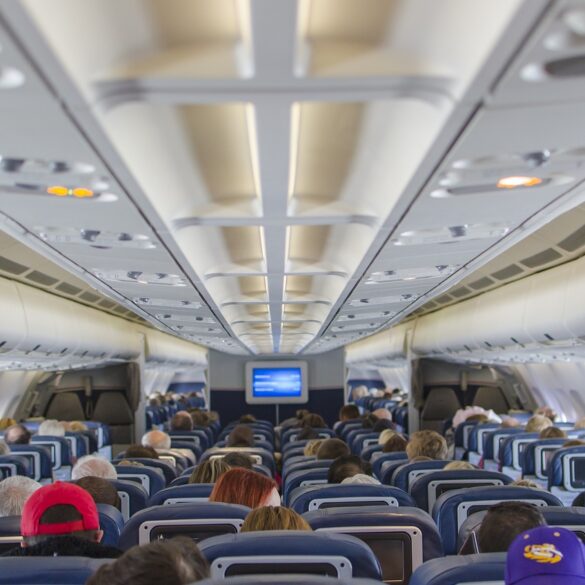The government of Denmark has proposed the imposition of an average tax worth $14 or 100 Danish Krone.
This tax will be levied on air travel in the country to provide funds for a green transition of the airline industry in the country.
Through its plan to turn green, the Danish government hopes that it will be able to facilitate all domestic flights with 100% sustainable fuels by the time 2030 rolls around.
The proposal was presented to the relevant government officials and went on to outline that the projected annual revenue of the project stands at 1.2 billion crowns.
Consequently, half of it will be allocated to funding Denmark’s ambitious goal of making the transition of all local flights to utilize green fuels by the end of the current decade.
The aviation sector
According to the Minister for Climate, Energy, and Utilities for Denmark, Lars Aagaard, the aviation authorities in the country try to strive to reduce their carbon footprints the same as other industries.
Only then, in the words of the minister, can the country build toward its dream of a sustainable airline industry and green future.
Where the other half of the projected annual revenue is concerned, the government revealed that it will be distributing the funds directly to the elderly population of the country in the form of cash.
As per the plan devised by the Danish government, the passenger tax will not be introduced right away. Rather, it will take at least two years to begin levying it.
Meanwhile, by 2030, the tax rates in the country are expected to go as high as $9 for travel between European countries.
On the other hand, $34 is likely to be the amount of tax levied on medium-distance flights in 2030 and $56 for long-distance flights.
Domestic route
Along with the announcement to transition to green, the Danish government made another revelation, which stated that it aims to introduce an inaugural domestic route.
It went on to reveal that this route would be exclusively powered by green fuels and will be launched in 2025.
Green future
Moreover, the country is also going to take steps to restrain the emissions of carbon dioxide (CO2), following the actions taken by the Netherlands government.
The relevant authorities in the Netherlands decided to triple the passenger tax for every flight.
It started off with a tax of €8 and chose to increase it to €26 for every flight ticket.
The increase represents a significant surge of €18.48 in passenger tax levied by the authorities.
Moreover, the relevant organizations of the country argue that with the rising air passenger tax, train and airline tickets could experience lower prices.
Thus, the government is trying to encourage tourists and locals to choose trains over planes.
It further revealed that the air passenger tax would only be levied for short and long-distance tickets.
It is no secret that sustainability for air travel has been a goal for most countries in the last couple of years, which is why the Netherlands, Denmark, and a number of other countries are taking significant measures to achieve it.



